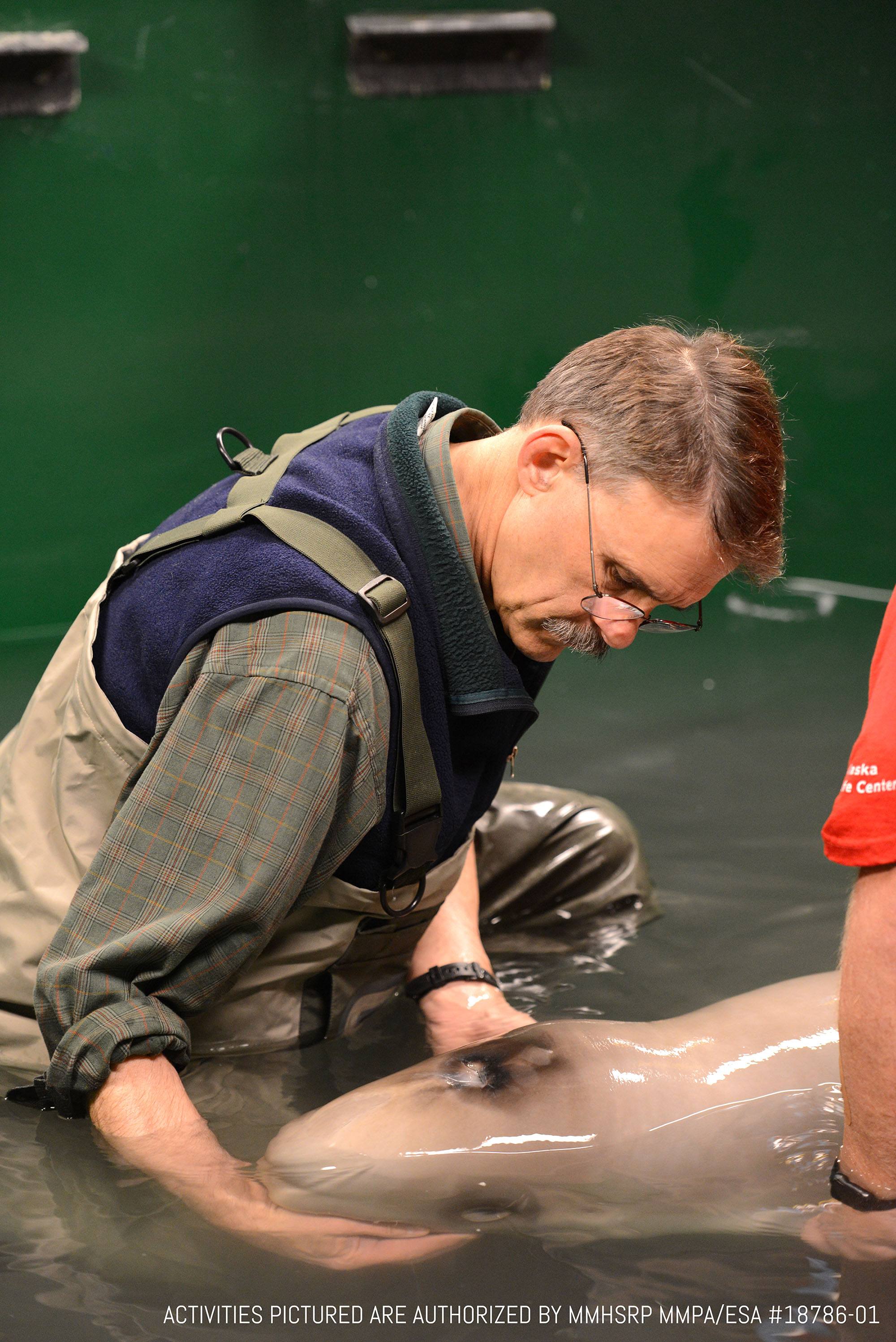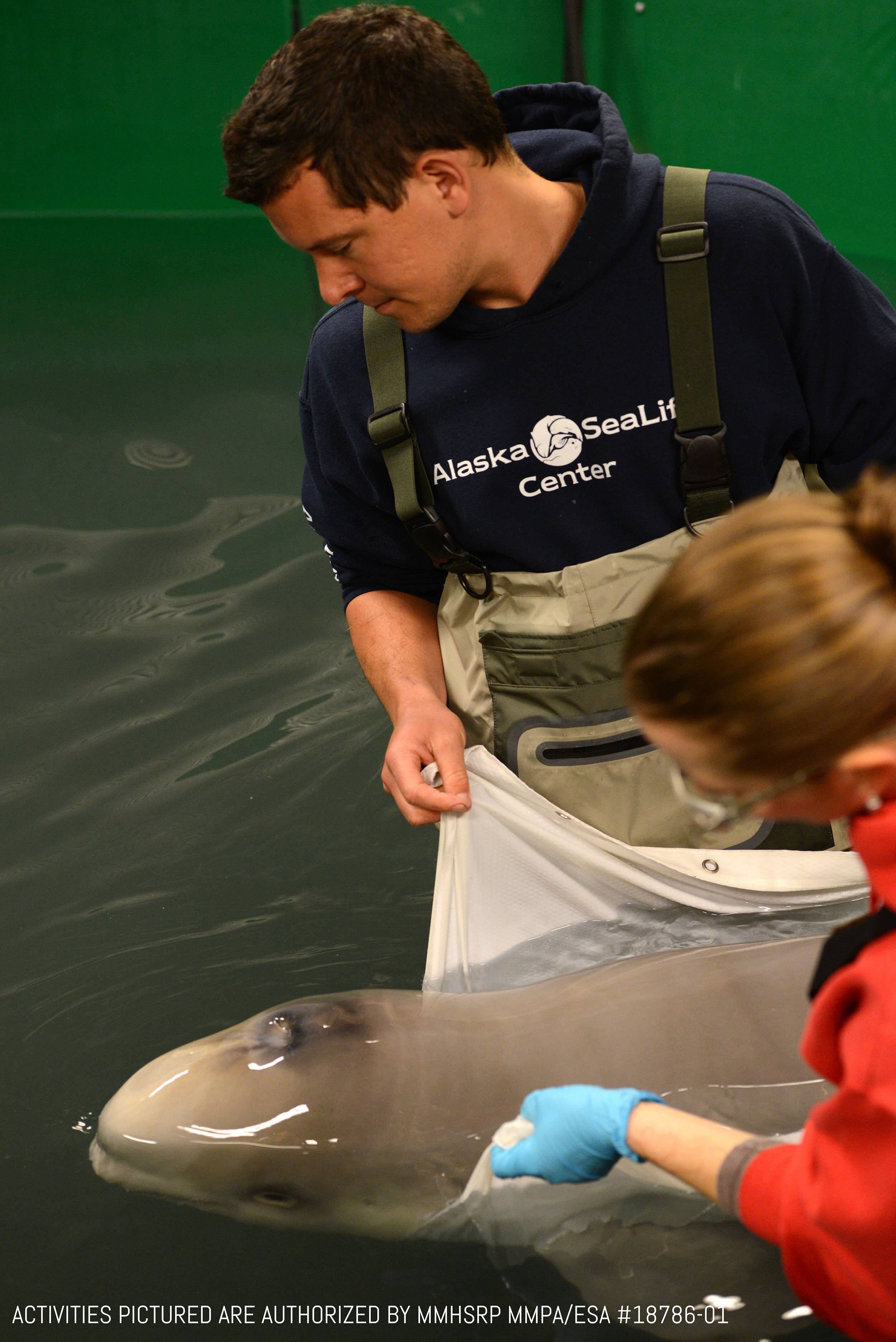Beluga whale calf rescue in Alaska assisted by Vancouver Aquarium

A stranded beluga whale calf has been rescued off the coast of Alaska with the help of the Vancouver Aquarium Marine Mammal Rescue Centre.
The male calf, thought to be between two and four weeks old, was found alone and struggling to survive in Western Cook Inlet on September 30.
Rescuers believe the young whale had been stranded for several hours; he was in a weakened condition, but without evidence of major physical trauma.

The beluga calf is under 24hr critical care at the Alaska SeaLife Center. (Activities pictured are authorized by MMHSRP MMPA/ESA #18786-01/Vancouver Aquarium)
Under authorization from the US National Oceanic and Atmospheric Administration, the stranded whale was moved to the Alaska SeaLife Center in Seward.
He is now receiving round-the-clock intensive care from global experts, including Brian Sheehan, marine mammal curator at Vancouver Aquarium.
However, the young beluga is still in critical condition and is currently being fed every two hours with an electrolyte solution and diluted formula, according to the care team.
Working alongside Sheehan are veterinarians and experts from Alaska SeaLife Center, Georgia Aquarium, Shedd Aquarium, SeaWorld and Mystic Aquarium.

The beluga calf is under 24hr critical care at the Alaska SeaLife Center. (Activities pictured are authorized by MMHSRP MMPA/ESA #18786-01/Vancouver Aquarium)
Live strandings of newborn beluga whale calves are relatively rare, and taking care of them is incredibly difficult, according to a release.
The animal care team say the calf is able to swim on his own and is breathing regularly, but there are “tremendous hurdles ahead.”
To the best of their knowledge, they say, there has never been a successful rehabilitation of a stranded newborn beluga anywhere in the world.
Due to the whale’s young age, there is a high risk of complications, so these first few days and weeks are a crucial time, they said.
The young whale is a member of the critically endangered Cook Inlet beluga population; only 328 of these whales are left in the wild.
Any future decision to release the young beluga will be made by the NOAA.
No belugas permitted at Vancouver Aquarium

Qila the beluga whale with a Vancouver Aquarium worker passed away this past November (Vancouver Aquarium)
The Vancouver Aquarium was previously home to two belugas, mother Aurora and daughter Qila, but both died last fall after ingesting an unidentified toxin.
Qila was the first beluga whale born and raised in a Canadian aquarium and contributed to many early studies of their physiology.
Over the years, scientists carried out groundbreaking research with Qila, which led them to discover unique vocalizations between beluga whale mothers and calves.
However, the Aquarium came under pressure from Vancouver animal rights activists over the past year to stop keeping cetaceans in captivity.
The Aquarium had proposed to phase out its beluga program by 2029 following a 12-year conservation project and the return of other belugas loaned out to other aquariums.
However, in May, Vancouver Park Board voted to ban new cetaceans being brought to the Aquarium, leaving the fate of any rescued whales, and the belugas on loan, uncertain.
In June, the Vancouver Aquarium fired back, launching a still ongoing legal action against the Park Board and the City of Vancouver to get the decision reversed.

